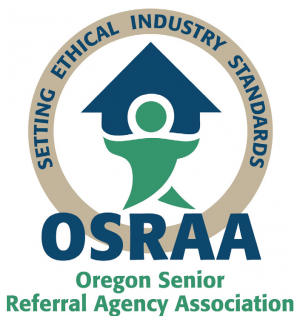Does Every Elderly Person Need to Assign Power of Attorney?
Nobody likes thinking about their parents getting old, but there is no escaping the fact of aging. Everyone gets older eventually, and some start showing signs of mental depreciation sooner than others. Eventually, every adult child will have to oversee his or her parent’s financial and medical decisions; it’s just a matter of when that transition will need to occur.
For this reason, it is important for an adult child to be granted Power of Attorney (POA) by their elderly parent(s) before the parent(s) is/are no longer able to manage their finances or to make reasonable decisions for themselves.
By being granted Power of Attorney, the adult child will become the one responsible for making all of the medical and financial decisions for their parent(s), from choosing which medical treatments are administered, to signing their tax returns, to paying their bills, and managing their mutual fund accounts.
4 Common Scenarios Where a Power of Attorney Is Beneficial
Not sure if you need a Power of Attorney? Here are four of the most common scenarios in which being granted a Power of Attorney can be beneficial.
- Your elderly parent is single or has a spouse who is not mentally capable of being a Power of Attorney
- Your parent is currently mentally competent but wants help managing his or her finances
- Your parent(s) need assistance during a temporary time frame (i.e., they’re traveling abroad, temporarily incapacitated, etc.)
- One of your parents does not want to take on the financial responsibilities should the other parent lose their mental faculties
Of course, a Power of Attorney can also prove useful when both of your parents are still of sound mind and body. By being granted back-up Power of Attorney privileges, you will already have everything in place should both of your parents become incapacitated.
How to Become a Power of Attorney
In order to become a Power of Attorney for your parents, you need to obtain a standard Power of Attorney application form from your lawyer, or you can download one from a legal website like LegalZoom or Rocket Lawyer. In most cases, a standard form is fine, but if you will be performing any real estate transactions on behalf of your parents, then you will need to obtain a state-specific Power of Attorney application.
The application form will note which powers are being granted, as well as any specific limitations. The time frame for which your power will extend is also required. If more than one person is being granted Power of Attorney status by your parents, it will need to be specified as to whether those people are able to act independently of the other(s) or if they are required to act jointly.
The completed form needs to be notarized with copies delivered to your parents’ financial adviser and/or attorney. Each person being granted Power of Attorney is also to be provided with copies of the form.

Common Challenges of Obtaining Power of Attorney
It is important to note that not all parents are willing to grant their adult children Power of Attorney. For many, it is an undeniable sign that their mental health might be fading, so they refuse more out of fear and denial than for any other reason. Some will even refuse to even discuss the issue.
So, how can you convince a stubborn parent to grant Power of Attorney?
There are a few different ways you can make the idea of Power of Attorney more palatable for your aging parent(s). Here are some ideas that might help.
Tell your parent that you want to name them your POA, just in case anything should ever happen to you. Explain to them what a peace of mind it is knowing that your needs will be met should you lose the ability to make important decisions for yourself. Then, while you’re filling out the paperwork, casually say, “Hey, why don’t we do one for you too while we’re at it?”
Another way to help with a parent who isn’t willing to listen to reason is to get the immediate family involved. If you have brothers and/or sisters, then plan a family meeting and discuss your thoughts with them and your parents.
If your parents have always looked to another one of their children as the most reliable, have that person bring it up or have them be the POA. If the whole family knows what’s happening, and they all agree on who the POA should be, then the entire process will go much smoother and easier for everyone, especially your parents.
If after involving the family, your parent is still objectionable to the idea, then you might find help from outside of the family. Turn to those who your parent trusts most, be it a preacher, an attorney, a doctor, or a best friend.
Getting support from such valued people in your parent’s life can be a huge asset in your journey to ensuring that your parent’s needs are managed when they are no longer able to do it on their own.







